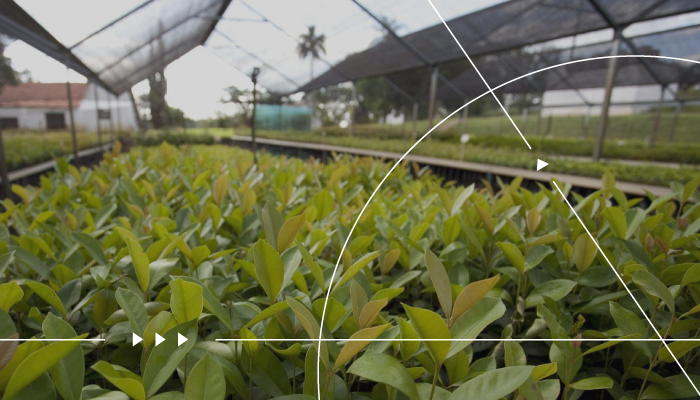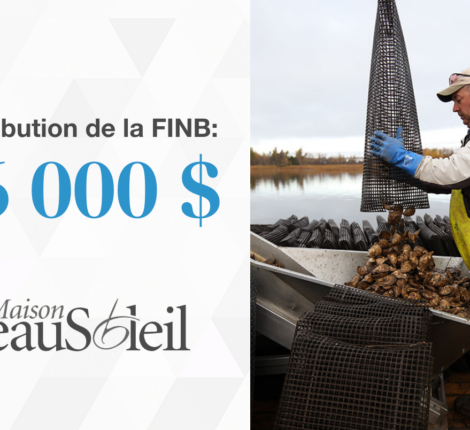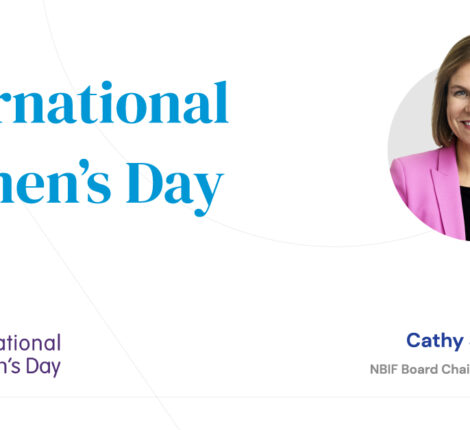- 29 octobre, 2020
- Idées d'innovation
- Comments : 0
Research Spotlight: Dr. Erika Naruzawa Is Growing Opportunity in Grand Falls

Hilary Lenihan
Research Development Officer
A lot of people think high tech business only speaks the language of coding. But some of the most advanced tech in the world is focused on humanity’s first industry – agriculture. Agronomist Dr. Erika Naruzawa at the Collège communautaire du Nouveau-Brunswick’s INNOV group in Grand Falls is leading the way with research aimed at helping industry create more robust crops with higher yields.
NBIF is proud to support the work of Dr. Naruzawa. We recently contributed $35,640 through our Equipment Fund to help expand the functionality of an advanced greenhouse facility on the CCNB’s Grand Falls campus. This greenhouse will enable Dr. Naruzawa to undertake carefully controlled experiments on a variety of crops for industry players looking to roll out new products.
I recently spoke with Dr. Naruzawa and discussed her ongoing research projects.
First, tell us a bit about the CCNB-INNOV applied research division. What kind of work does it do?
CCNB-INNOV is a multi-disciplinary research team that runs research projects in different fields of study (Advanced Manufacturing; Advanced Materials). Here in Grand Falls we focus on agriculture, bioprocesses, beverages, and environment (known as ABBE division). We have labs, a greenhouse and scale-up space needed to help industry explore some of the technical, analytical, and processing requirements for new or improved products and crops. We’ve worked with many start-ups and established companies in the province – from craft brewers to major potato producers.
What is your area of focus?
As an agronomist, I have worked with a range of crops and plant diseases over the course of my career, but my current focus is on vegetables (such as potatoes, tomatoes, sweet potatoes) and cannabis. These are all crops that can be grown here in New Brunswick, and in the case of potatoes and cannabis they are already very important crops. I work with industry partners to assess the impact of products like fertilizers and bio-stimulants and explore diseases that hurt crop production. This research is a vital step in successful commercialization. We’re a busy group here in Grand Falls.
How will you use this enhanced greenhouse facility?
I’m excited to have access to this greenhouse. It will be covered and have enclosed spaces to allow us to run multiple experiments simultaneously on different crops. The enclosed spaces inside the greenhouse enable us to create subdivisions for research projects that require different growing conditions. It will also ensure we can avoid the spread of diseases or pests between the research projects. We will also improve the irrigation system and add an air conditioner to our greenhouse. We will be able to control for light, irrigation, temperature, and exposure to diseases. It’s a game changer for my research here in Grand Falls.
What kind of projects are you working on right now?
I have three active projects underway now with several others in the development phase. All these projects will benefit from having access to this improved greenhouse facility. As researchers our work must begin in a greenhouse under a controlled environment before we can take it to the farmer’s fields. Researching these crops, processes and products starts small and then goes bigger.
Can you give us an example of an industry partnership you are involved in?One of the interesting partnerships we are involved in right now is with GrowDoc, a Moncton start-up that is developing an app to help Cannabis producers identify sick plants. Earlier this year they won La Coupe des Startups at the Université de Moncton. Here in Grand Falls we have a Cannabis Research License from Health Canada that allows us to explore a wide range of issues related to cannabis production. In short order cannabis has become an important industry here in New Brunswick. Working with companies like GrowDoc, we are researching cannabis production, plant pathology and fertilization issues. This is rapidly emerging field yet there is currently little research available – only few peer reviewed studies in cannabis agricultural aspects have been published to date.
Will students be able to access this greenhouse facility?
Yes! Students of CCNB Edmundston from the Biotechnology course and in the Cannabis Cultivation Technician program in CCNB Campbellton could have access to this facility, depending on the project we have and the company we are working with. We also bring in several interns over the course of the year to support our research efforts. Teaching students through this greenhouse is an important part of our work.
Dr. Naruzawa is a New Brunswick researcher to watch. Her work is creating new knowledge for the agriculture industry, and new opportunities for New Brunswickers in particular.



